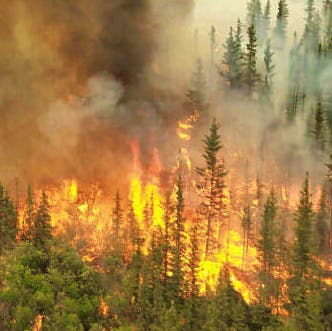2012 is ramping up to break more extreme weather records than 2011.
As described in Defenders’ most recent publication “Harnessing Nature,” last year saw no fewer than 14 extreme weather related events. This past weekend the Eastern U.S. was swept up in a powerful storm and currently the Western U.S is still trying to extinguish a ferocious fire and most of the country is boiling from extreme heat.
Breaking records across the country, this heat spell is proving to be one of the most severe in recorded history. From Denver to Nashville, cities saw temperatures soar past 100 degrees, shattering previous records. According to the National Oceanic and Atmospheric Administration, 1,884 daily high records have been broken in the last seven days.
The prolonged heat hasn’t helped matters in the western part of the country. Wildfires still rage in Colorado. Over 32,000 people have been evacuated from their homes as the fires raced towards one of the state’s second most populated city, Colorado Spring.
Having already killed two and destroyed hundreds of homes, this is one fearsome blaze. As of today, the fire is reported to be about 17,000 square acres, with the threat of growth listed as “extreme”.
The Eastern half of the U.S. got blasted by extreme storms last week. Leaving millions without of power and killing at least 18, this set of storms also left people without air conditioning and some without running water. Power is not expected to return to some until Friday, forcing many to endure extreme temperatures in the 90s and higher for days to come.
In a recent poll from Yale University, many Americans are making the link between extreme weather and climate change. People are looking for ways to cope as weather appears to be getting worse.
Extreme heat and no power can make for a deadly combination. Experts recommend remaining indoors when possible. Drinking lots of non-alcoholic fluids and wearing light-weight, light-colored clothing helps beat the heat. If going outside is unavoidable, limit activities to mornings and evenings, and sticking to the shade when possible.
To learn more about the links between climate change and extreme weather visit Science Daily News.
To learn how you can help stop climate change, visit the Earth Institute at Columbia University.



